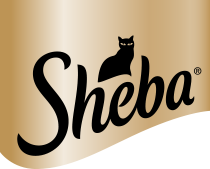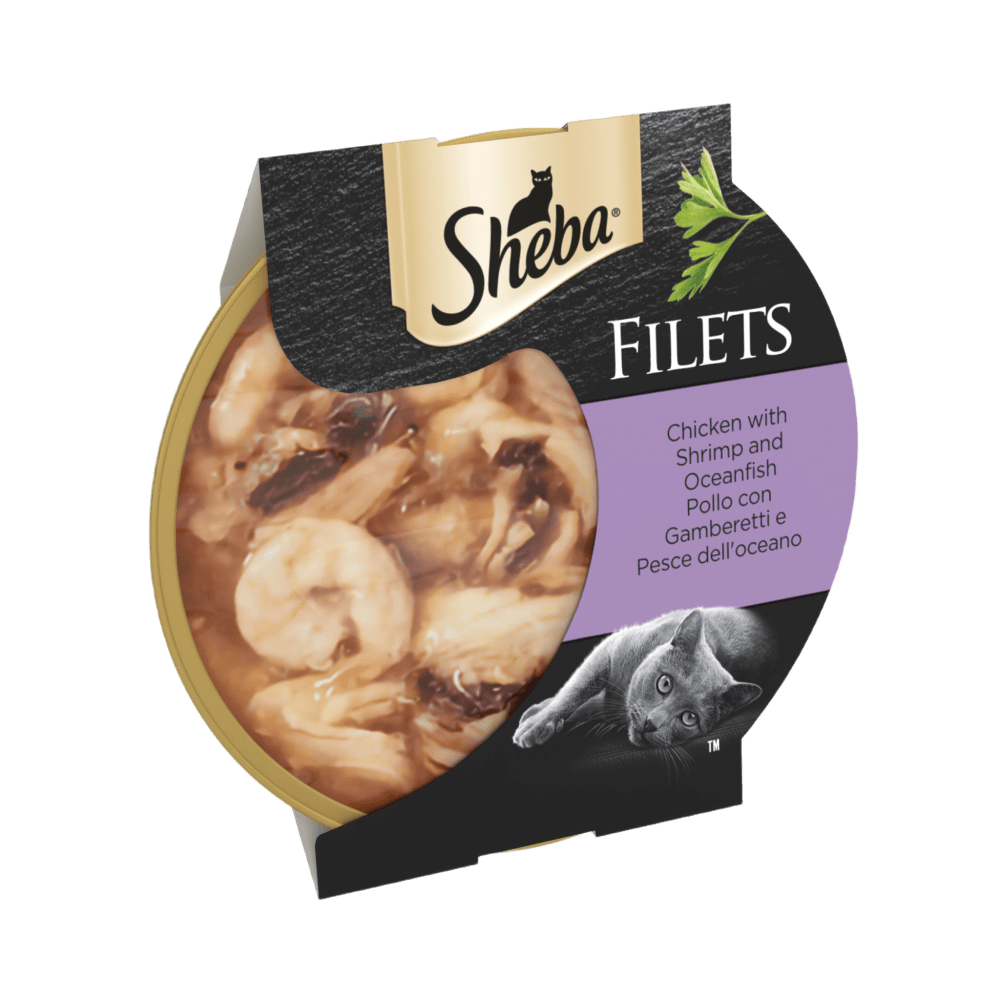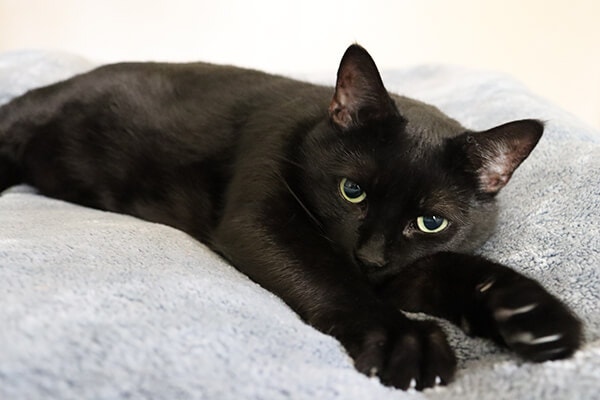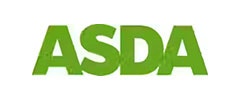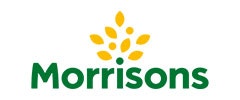Why Your Cat’s Drooling When Purring
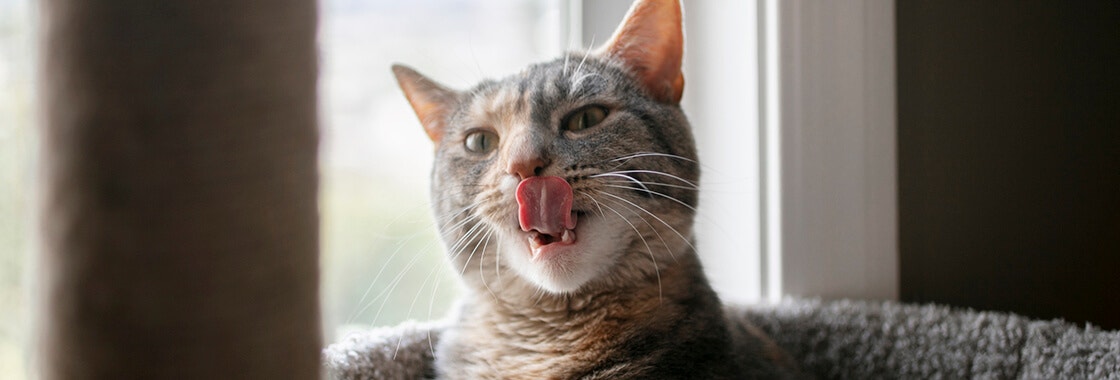
Share
As a cat parent, you’ve probably heard your cat purr countless times and know that the reason why cats purr is usually because they feel happy. However, what you may not have noticed before is your cat drooling when purring. You may even be surprised to see this, especially if you’re accustomed to the idea that only dogs drool. In actuality, cats can drool when they purr for a number of reasons - with the most common being that your cat is truly content. In this article, we explore the various reasons why cats drool when purring, alongside possible health-related causes that may require veterinary attention. We also cover some FAQs at the end of the article. It’s important that cat parents understand their cat’s behaviour in order to correctly interpret how they are feeling and respond accordingly, as well as to rule out any serious underlying issues.
Reasons why cats drool when they are purring?
The reason why cats drool when purring is usually because they’re extremely happy. They could be happy with your company, the attention they’re receiving, or the homely environment you’ve created for them. Purring is a way for cats to communicate their happiness, and if your cat also dribbles when they purr, it’s simply a magnification of how happy they are. Below, we look at some positive reasons that can make your cat drool when purring.
- Expressing contentment
As you know, one of the reasons why cats purr loudly is because they’re happy. But if you see cats dribble when purring, this is likely because their state of contentment has caused muscles in their mouth to relax and lead to excess saliva. You can be rest assured knowing they are very content with the life you have provided them.
- Showing affection
Cats can show love and affection in different ways. When close to you, your cat may dribble when purring because they enjoy your company and want to show their deep affection and attachment to you. This could also be the reason why cats stick their tongue out - another interesting behaviour.
- Enjoying attention
If you’re grooming or petting your cat, don’t be surprised if your cat begins to dribble when they purr. This is because the sensation is pleasurable for many cats, and your cat is likely enjoying all the attention from you. Your cat may also drool when purring because they’re communicating their satisfaction, and don’t want you to stop!
- Feeling relaxed
When cats are in a state of relaxation, their whole body will relax too. One of the reasons why cats dribble when purring is because the muscles in their mouth are relaxed, which allows some saliva to escape. This is the same for when your cat is sleeping. You may also notice your cat yawning when they are relaxed - either before or after their naps.
- Self-soothing
Sometimes, the reason your cat dribbles when purring is because they are trying to comfort themselves from stress and anxiety. This behaviour may be a coping mechanism for your cat in difficult situations. Since purring releases serotonin, your cat may be self-soothing themselves with this behaviour.
Investigating smells
Cats have an incredible sense of smell. If your cat notices a particularly pungent smell, they may continue to try and sniff it. As they focus on sniffing, your cat may even drool when purring. However, this should usually stop after a few minutes once your cat stops investigating.
If you want to confirm whether your cat is drooling when purring because they’re happy, you can observe their body language and other behaviours. We’ve listed some positive signs below:
- Relaxed body posture
- Upright and slightly curved tail
- Ears upright and whiskers forward
- Slow blinking or half-closed eyes
- Kneading or head-butting you
Health related reasons why cats drool
Usually the behaviour of a cat drooling when purring is not concerning, especially if it’s a small amount of saliva and happens occasionally. However, if your cat’s drooling is new, excessive or continuous, it can sometimes be an indicator of an underlying health issue. You’ll know if it’s too much if your cat has wet fur or drool hanging around their mouth, or if there are little pools of saliva when your cat moves from their place. These situations are concerning and will need to be investigated by a veterinarian. We look at some health-related reasons why your cat drools when he purrs below.
Oral health issues
If your cat is drooling excessively, they may have a problem with their oral health. They may have developed gum disease, which can cause pain and lead to excessive drooling. It’s also possible your cat has tooth pain due to an injury or infection, or a condition affecting the mouth. If your cat has any symptoms that may suggest an oral or dental health issue, including if your cat is not eating, showing signs of discomfort, shying away when you stroke their head, or being quieter and more subdued than usual, contact your veterinarian for an appointment.
Foreign object
Since cats are curious creatures, they may sometimes swallow inappropriate items. If your cat swallows a foreign object, such as a part of a toy, this can cause a lot of pain and discomfort for them - as well as a gastrointestinal blockage. If this is the case, your cat may be lethargic, have difficulty eating or might drool excessively. However, the main sign of intestinal blockage is vomiting, regurgitation of food or lack of faeces. If you suspect your cat has swallowed a foreign object, consult your veterinarian as soon as possible.
Toxic substance
Besides random objects, cats may also accidentally consume something toxic to them. In fact, cats often drink from puddles outdoors, and it can be extremely dangerous if they do this underneath a car as there may be antifreeze solutions present, which is highly toxic for cats. It’s also possible that your cat has brushed against a toxic substance outside, and accidentally ingested this whilst grooming themselves. Excessive drooling is one of the first symptoms that your cat has consumed a toxic substance, as well as pain, lethargy and nausea. It’s essential to take your cat to an emergency veterinarian quickly to avoid potentially fatal consequences.
Heat stroke
In rare cases, excessive drooling in cats could be a sign of heat stroke. This can occur if your cat is exposed to extreme temperatures for too long and therefore struggles to regulate their body temperature. If your cat becomes overheated, they can quickly become dehydrated, which may lead to excessive drooling. If you suspect any signs of heatstroke in your cat, consult your veterinarian as a matter of urgency.
Cat parents will know how special and strange our feline friends are. While cats can sometimes be aloof about their love, they will show their affection in various ways when they choose to. Besides a cat drooling on you when purring, they may even go as far as to lick you! There are many reasons why cats lick you, and while most of them are positive, it’s best to learn more about your cat’s curious behaviours to really understand them.
Cats drooling FAQs
Why does my cat drool when affectionate?
Your cat may drool when affectionate because they feel extremely content. Their love for you creates a state of euphoria, in which they feel so safe and secure that they can completely relax. This may cause your cat to lose control over their mouth muscles and lead to drooling.
Why does my cat drool when I cuddle her?
The reason why your cat drools when you cuddle them is because they are really enjoying the attention and affection from you. This allows them to become incredibly relaxed, which causes the muscles in their mouth to also relax and therefore leads to them drooling.
Do cats drool when they are comfortable?
Yes, cats absolutely drool when they are comfortable. Whether they are being petted, cuddled or groomed, or even if they are sleeping in a cosy environment, you may notice your cat drooling in their state of relaxation. This is because their entire body is relaxed, including their mouth muscles.
However, in this state, the drooling should be temporary and minimal. Drooling becomes a warning sign if it is excessive and constant.
